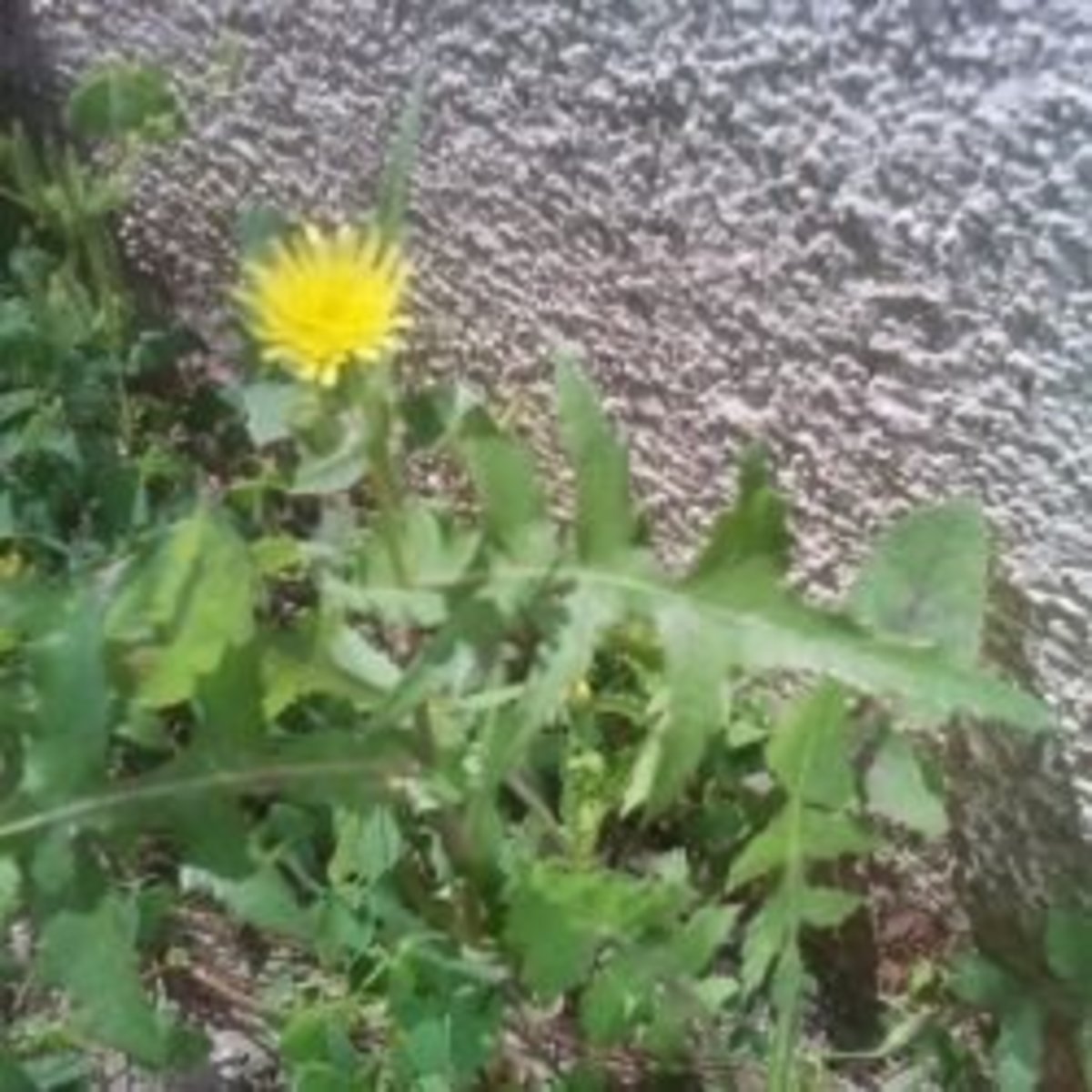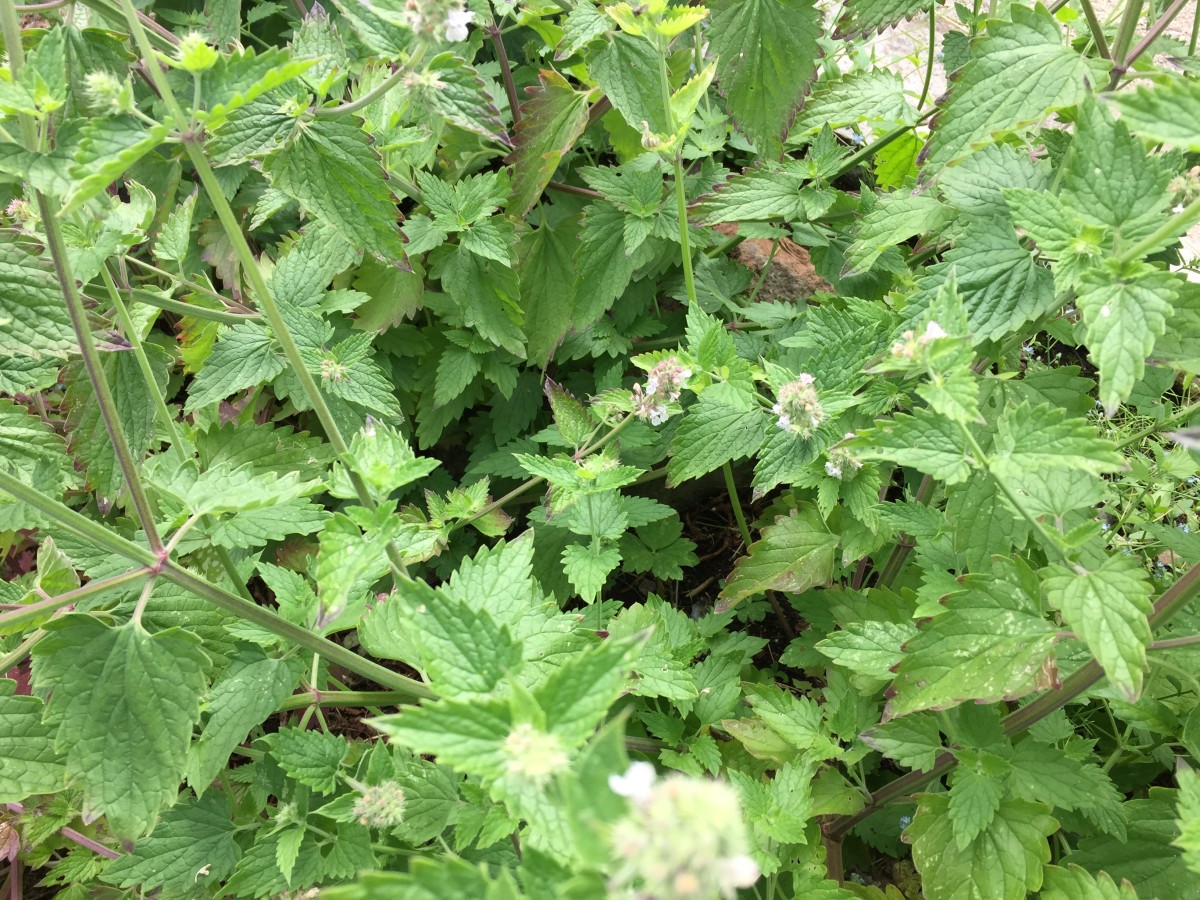Green Gardening: Natural Pesticide Sprays You Can Make Yourself

You Can Protect Your Garden Without Harsh Chemicals
Let's face it . . . a few bugs can ruin a great garden. Of course, not all bugs are bad but between a swarm of plant lice, slugs and other destructive pests, you can barely reap what you've sown.
Great news . . . there's no reason to let your garden go to the bugs just because you don't want to use chemical pesticides. One of the ways you can practice green gardening and control garden pests, is by making your own natural pesticide sprays.
Chances are, you already have the makings for an effective bug spray in your home right now. Here are a few natural pesticide "recipes" you can make yourself.
Oh, No!!! - What's A Green Gardener To Do?

Photo used under Creative Commons from: stevendepolo, on Flickr

Horseradish Natural Pesticide Spray
This Spicy Spray Packs A One-Two Punch!
To get rid of aphids as well as blister beetles, Colorado beetles and whiteflies.
Add a one-inch piece of chopped fresh horseradish, two cups of diced cayenne peppers and two cups of geranium leaves to three quarts of boiling water. Remove from the burner and let steep for one hour. Strain and add the cooled mixture to spray bottles.

Liquid Dish Soap Natural Pesticide Spray
Clean Up Your Bug Problem With This Solution
This natural pesticide works quite well on mites for both indoor and outdoor plants.
Use a mild, bio-degradable liquid dishwashing soap or something like Murphy's Oil soap. Mix one cup** of soap with one gallon of water. Pour into a spray bottle and mist the leaves of plants. Be careful not to overuse because it can slow the growth of flowering fruit or vegetable plants. However, this solution is ideal for indoor household plants.
** Note: some recipes will only use only 1 to 3 tablespoons of mild dish soap per gallon
Rules For Using Any Natural Pesticide "Recipe"
5 Pesticide Spraying Basics
SPRAYING BASICS
1. . . It is best to use any type of spray in the early morning or the cool of evening. Do not spray when temps are above 80 degrees Fahrenheit! Your plants may "burn" or have a reaction to what you are using in excessive heat. This is known as "phytotoxicity"
2. . . Always perform a test on a small portion of the plant material first. Wait 24 hours to observe any negative reaction. Proceed if there is no damage.
3. . . Really and truly...more is not better. If you are not getting good results don't increase the strength of these remedies without testing first.
4. . . Target just the area you need to treat. Be careful... try not to harm the good guys! You don't want to run off your allies.
5. . . When working with sprays or dusts always protect your exposed skin and face. Some of these ingredients can be very irritating to your skin, eyes and mucous membranes, especially any hot pepper sprays.
Spraying Basics Courtesy of: GHOrganics

Tobacco Natural Pesticide Spray
A Smokin' Way To Combat Bad Bugs
Use this solution to combat aphids, caterpillars and several types of worms.
Place approximately a half cup of chewing tobacco into a piece of cheesecloth or an old nylon stocking, and tie it. Soak in a gallon of hot water until it resembles brownish tea. Add a little bio-degradable dish soap and pour this mixture into a spray bottle. When using on your garden vegetables, avoid spraying your peppers,tomatoes, eggplants, potatoes or any other member of the nightshade family, as the tobacco spray can kill them.
Chewing tobaccos is a safer, more natural form of tobacco to use than cigarette or pipe tobacco.
?How Do You Tell The Good Bugs From The Bad Ones? - This Handy Reference Tells You How

Oh Nooo-ooo . . . Not Again! - The S&S Gangs (Slugs & Squirrels) Have Struck Again

Photo used under Creative Commons from: EraPhernalia Vintage (catching up), on Flickr
Helpful Tips . . .
Here one of my favorite sites that offer a wealth of "green" gardening tips.
- Golden Harvest Organics
We offer Golden Harvest Natural Feritlizer a completely natural product that contains no inert ingredients and is eco friendly. Natural gardening solutions, organic products for you of all kinds!

Garlic Natural Pesticide Spray
This Classic Solution Does Double Duty
It is said that alliums are great for combatting soft body insects and also makes a great fungicide.
Liquify in a blender, several cloves of garlic in 1 cup of vegetable oil. Then combine with one gallon of water. Hint: If there's still too much pulp in this liquid combo, you may need to strain to avoid clogging the sprayer.

Yarrow Natural Pesticide Spray
This Brew Repel Pests . . . and Gives Your Vegetable Garden A Lift
For amphids and several other pests, yarrow works quite well as a deterrent when applied every week or so to your garden vegetables. This solution is also a great plant tonic.
Soak 1 cup of yarrow plant pieces in 16 ounces of water for 24 hours or more. Brew it in the sun like tea. Strain and mix with 1 gallon of water. Mix in strongly brewed coffee and 1/4 teaspoon castile soap. Spray on aphids and other soft bodied pests every 1-2 weeks. Or use as a preventative.
This "recipe" courtesy of: GH Organics
Natural Insect and Disease Control - A Must-Have Organic Gardening Handbook

© 2009 Dee Gallemore



